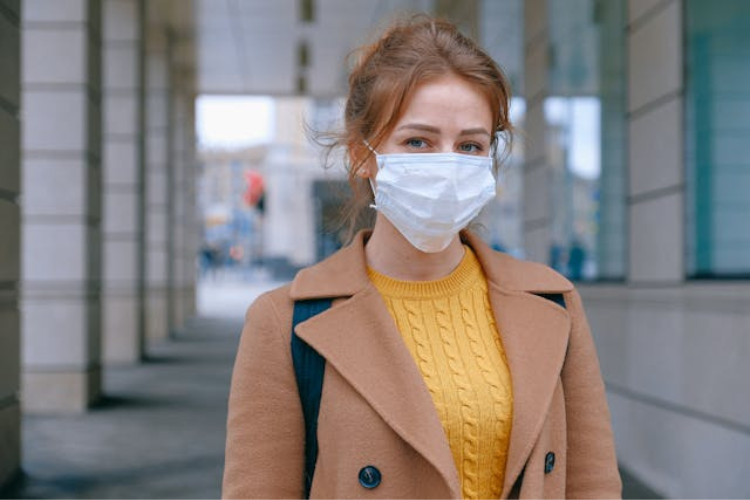Table Of Contents
- 6 Public Health Trends That You Should Know About
- Closing Gaps In Health Equity And Access
- Using Data To Drive Smarter Decisions
- Climate Change As A Growing Health Risk
- Bringing Mental Health To The Forefront
- Global Health Security And Preparedness
- Food Systems And Nutrition At The Center Of Health Policy
- Stay Updated
Public Health Ahead: 6 Key Trends to Watch
Last Updated on: October 16th, 2025
The world of public health is shifting way faster than most folks realize. Think about it—WHO says nearly half the people on this planet still don’t have basic healthcare.
That’s wild. And on top of that, new problems keep popping up: strange disease outbreaks, a spike in mental health struggles, plus climate change literally making people sick. All this is piling onto systems that already feel stretched thin.
So the big question is… how do we even get ready for what’s coming? Public health trends aren’t just about shots and clinics anymore.
It’s about tech, communities pulling together, and countries actually working side by side. To make sense of it, let’s look at a few trends already reshaping how we deal with health challenges.
6 Public Health Trends That You Should Know About
There are several key public health trends, including the introduction of technologies such as big data and AI for disease prediction and monitoring. A strong focus on health equity, along with addressing the social determinants of health, and focusing on substance abuse issues and mental health.
Closing Gaps In Health Equity And Access
Where you’re born, how much money you’ve got, or even your zip code—it all changes the kind of care you get.
Rural towns often don’t have specialists, and low-income families hit roadblocks even for basic treatment. We all saw this loud and clear during COVID: vaccines, tests, you name it—some groups had easier access than others.
Now, equity is front and center. Mobile clinics roll into neighborhoods that don’t have hospitals nearby. Community workers knock on doors. Outreach programs try to fill the holes.
Folks with a masters in public administration online (yes, even online grads) are stepping in with the skills to design policies that reach people who’ve been left behind. Bottom line: public health can’t just serve the well-off—it’s gotta include everyone.
Using Data To Drive Smarter Decisions
Data’s always been part of public health, but wow, the scale now is insane. We’re talking artificial intelligence scanning huge data sets and spotting patterns no human could. Like, they’ve tracked flu trends by looking at Google searches and Twitter chatter—sometimes faster than official reports.
That kind of early heads-up? It can mean the difference between stopping an outbreak early and watching it snowball. And it’s not just about viruses—data shows rising cancer rates in certain regions, or the link between dirty air and lung problems.
Of course, there’s a catch: privacy. People won’t trust the system if they feel spied on. So yes, the tech is powerful, but it only works if folks believe their info’s being handled right.
Climate Change As A Growing Health Risk
It’s impossible to ignore it now: climate and health are tangled up. Rising global temperatures mean more people are collapsing from heat. Shifts in rainfall?
Suddenly, mosquitoes carrying malaria or dengue show up in places they never used to. And don’t even get me started on air pollution—it’s behind millions of deaths each year.
Hospitals and clinics are already feeling it. ERs flood with patients during heatwaves. Rural areas hit harder by floods or storms have fewer resources to bounce back.
Preparing isn’t just about reacting when disaster strikes. It’s building in resilience: warning systems, tighter teamwork with environmental experts, and even local adaptation projects that give communities some backup.
Bringing Mental Health To The Forefront
Not too long ago, mental health was shoved to the side—like a bonus issue. That’s finally shifting. More clinics are bundling physical and mental care together. You go in for a diabetes check and can also get help for depression right there.
Workplaces are stepping in too. Wellness programs aren’t just yoga classes anymore—they’re offering counseling, stress relief workshops, the works.
People are realizing that ignoring mental health costs money and productivity, not just personal pain. Stigma’s still hanging around, sure, but little by little it’s fading. That’s progress worth holding onto.
Global Health Security And Preparedness
COVID showed us the ugly truth: the world was not ready. Not even close. Since then, governments and global orgs have started investing more in preparedness. Think upgraded surveillance systems, bigger stockpiles of masks and vaccines.
But here’s the kicker: none of it works if countries keep acting solo. Global cooperation is non-negotiable. Shared data, shared research, fast communication—otherwise we’re back to square one. The real test?
Will nations keep up the momentum once the memory of COVID fades, or will the urgency vanish until the next big one hits?
Food Systems And Nutrition At The Center Of Health Policy
Here’s another piece that doesn’t get enough attention: food. Bad diets fuel obesity, diabetes, heart problems—you name it.
WHO says unhealthy eating is behind millions of early deaths every year. Slowly, governments are waking up. Sugary drink taxes, food labels that actually make sense, bans on trans fats—it’s happening.
On the ground, communities are pitching in too. Farmers’ markets, school lunch overhauls, nutrition programs for kids—those small changes add up.
Schools, especially, have become a big focus, teaching kids how to eat better while giving them healthier meals. It’s proof that fixing public health isn’t just about hospitals—it’s about what’s on our plates every single day.
Stay Updated
Public health trends are staring down some of the trickiest challenges we’ve ever seen. But it’s not all doom and gloom—there’s also innovation and new energy driving the field. From AI and digital tools to stronger global teamwork, the potential’s there to tackle crises quicker and smarter.
Still, let’s be real: climate risks, inequality, and the demand for skilled workers won’t magically vanish. The trends ahead suggest the future of health isn’t about solving one issue—it’s about adapting to a bunch of interconnected ones.
And that’s going to take everyone—policymakers, doctors, communities—playing their part. If we put the work in now, the next decade might just surprise us with some wins for global health.
Read Also:















